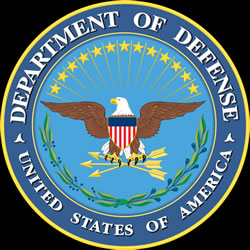
14 Challenges in the Secretary of Defense’s Inbox on Day 1
Chuck Hagel has resigned as Secretary of Defense, pending selection of his successor. He was a decorated Vietnam Veteran and two-term moderate Republican Senator, and he served almost two years in the Pentagon. [Editor’s note: Hagel had been a board member at ASP before becoming the Secretary of Defense.] We’re sorry to see him go.
There’s no shortage of challenges that his successor will face. Yesterday, ASP Adjunct Fellow Ken Robbins had a few questions (ISIS, Intelligence Reform, and Budgets) that will be in the new SecDef’s inbox.
Here’s a few more from around the ASP family.
The Middle East
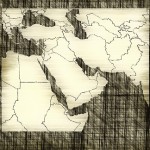 It’s not just ISIL that will keep the next Secretary of Defense awake at night, instability and growing violent extremism has taken hold all across the region. As the international coalition continues action in Syria and Iraq, violence is on the rise in Israel and Palestine, Turkey, Lebanon and Jordan face a huge refugee crisis, the conflict in Yemen continues , the disintegration of Libya may not be avoided (see below), the relationship with Egypt is still precarious – all of which offer strategic threats to U.S. national security. In the meantime, the United States will have to protect its basis in the gulf region, and work with its allies in order to counter this instability. The Secretary of Defense has a huge job to help create and strengthen this coalition.
It’s not just ISIL that will keep the next Secretary of Defense awake at night, instability and growing violent extremism has taken hold all across the region. As the international coalition continues action in Syria and Iraq, violence is on the rise in Israel and Palestine, Turkey, Lebanon and Jordan face a huge refugee crisis, the conflict in Yemen continues , the disintegration of Libya may not be avoided (see below), the relationship with Egypt is still precarious – all of which offer strategic threats to U.S. national security. In the meantime, the United States will have to protect its basis in the gulf region, and work with its allies in order to counter this instability. The Secretary of Defense has a huge job to help create and strengthen this coalition.
Ukraine, NATO, and Russia
 One of the most difficult foreign policy challenges for the entire Atlantic alliance is how to respond to the unpredictable and assymetric challenges that Russian forces posed during the Ukraine conflict. NATO’s easternmost members are once again on a front line and need reassurance of western solidarity. Ukraine, meanwhile, faces a long winter of challenges. Finally, no one wants to start a new Cold War with Russia. How can the new Secretary reassure allies, help stabilize Ukraine, and offer a face-saving way out for Putin? Is there a win-win-win solution in Ukraine?
One of the most difficult foreign policy challenges for the entire Atlantic alliance is how to respond to the unpredictable and assymetric challenges that Russian forces posed during the Ukraine conflict. NATO’s easternmost members are once again on a front line and need reassurance of western solidarity. Ukraine, meanwhile, faces a long winter of challenges. Finally, no one wants to start a new Cold War with Russia. How can the new Secretary reassure allies, help stabilize Ukraine, and offer a face-saving way out for Putin? Is there a win-win-win solution in Ukraine?
Afghanistan
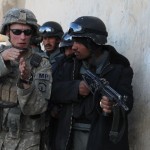 As the Administration again shifts the role of U.S. forces in Afghanistan, the next Secretary of Defense will have to juggle with the reduction of forces in the theatre and the increased threat of instability caused by the Taliban and other insurgent forces. On the positive side, the new Government under President Ghani seems to be offering more movability for U.S. forces (especially on night raids) , but as we learnt from his predecessor, managing the relationship with the Afghan President could be a major headache for the new Secretary.
As the Administration again shifts the role of U.S. forces in Afghanistan, the next Secretary of Defense will have to juggle with the reduction of forces in the theatre and the increased threat of instability caused by the Taliban and other insurgent forces. On the positive side, the new Government under President Ghani seems to be offering more movability for U.S. forces (especially on night raids) , but as we learnt from his predecessor, managing the relationship with the Afghan President could be a major headache for the new Secretary.
Humanitarian/Disaster Relief
 Humanitarian and disaster relief will continue to be a primary role for the U.S. Armed Forces. As the effects of climate change mount, and we see new challenges that emerge (see Ebola), the military will be expected to meet the humanitarian challenges that result. Though humanitarian relief should not be conducted specifically for public diplomacy purposes, there are potential benefits to the United States that should not be ignored. As the new SecDef will undoubtedly face new challenges, the U.S. should not only be prepared to meet them, but plan to maintain the relationships it builds build as a result.
Humanitarian and disaster relief will continue to be a primary role for the U.S. Armed Forces. As the effects of climate change mount, and we see new challenges that emerge (see Ebola), the military will be expected to meet the humanitarian challenges that result. Though humanitarian relief should not be conducted specifically for public diplomacy purposes, there are potential benefits to the United States that should not be ignored. As the new SecDef will undoubtedly face new challenges, the U.S. should not only be prepared to meet them, but plan to maintain the relationships it builds build as a result.
The Nuclear Triad
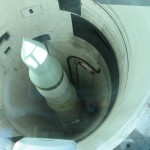 Debates about the nuclear triad will resurface during the budget process, with significant concern over the readiness of our missiles, submarines, and bombers. The personnel problems with both the Air Force and Navy have raised concerns over the professionalism of the force, along with the considerable cost to modernize. The next Secretary will have to tackle both problems simultaneously. Complicating this process will be the political entities protecting the bases, bombers, and missiles in their states.
Debates about the nuclear triad will resurface during the budget process, with significant concern over the readiness of our missiles, submarines, and bombers. The personnel problems with both the Air Force and Navy have raised concerns over the professionalism of the force, along with the considerable cost to modernize. The next Secretary will have to tackle both problems simultaneously. Complicating this process will be the political entities protecting the bases, bombers, and missiles in their states.
Nuclear Proliferation
 Foremost on this subject will be the continuing dialogue with Iran and the negotiations to limit their nuclear capability. While this is predominantly a State Department issue, the Department of Defense will play a supporting role and be concerned about the positions of all the other countries affected. The Secretary will also have to ensure that US special forces that could be involved in planning and operations to counter nuclear proliferation activities globally have the right resources and equipment.
Foremost on this subject will be the continuing dialogue with Iran and the negotiations to limit their nuclear capability. While this is predominantly a State Department issue, the Department of Defense will play a supporting role and be concerned about the positions of all the other countries affected. The Secretary will also have to ensure that US special forces that could be involved in planning and operations to counter nuclear proliferation activities globally have the right resources and equipment.
Thinking about Metrics
 It is one thing to conduct an operation, and another to measure whether or not it was effective. This is a core issue in the practice of military information support operations (MISO). The military often measures its effectiveness incorrectly, by measuring output instead of results. As the military has engaged in a number of efforts to influence the minds and actions of foreign target audiences, either with institutional resources or through the use of contractors, more emphasis must be placed on whether or not these efforts are effective. In an age where ISIL attracts so many followers, the secretary of defense should have a good handle on what the military is doing to influence audiences overseas.
It is one thing to conduct an operation, and another to measure whether or not it was effective. This is a core issue in the practice of military information support operations (MISO). The military often measures its effectiveness incorrectly, by measuring output instead of results. As the military has engaged in a number of efforts to influence the minds and actions of foreign target audiences, either with institutional resources or through the use of contractors, more emphasis must be placed on whether or not these efforts are effective. In an age where ISIL attracts so many followers, the secretary of defense should have a good handle on what the military is doing to influence audiences overseas.
Culturally Training America’s Warriors
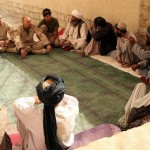 America’s warriors are amongst the best trained, best educated in the world, but there is room for improvement. Just as combat training educates our warriors on the best ways to accomplish their missions and come home, cultural training can provide knowledge and skills crucial for the success of the mission. This is increasingly important as our troops are interacting with foreign publics in and out of combat zones. The next SecDef should analyze whether the cultural training we are providing to our men and women serving overseas is adequate for the missions they are assigned.
America’s warriors are amongst the best trained, best educated in the world, but there is room for improvement. Just as combat training educates our warriors on the best ways to accomplish their missions and come home, cultural training can provide knowledge and skills crucial for the success of the mission. This is increasingly important as our troops are interacting with foreign publics in and out of combat zones. The next SecDef should analyze whether the cultural training we are providing to our men and women serving overseas is adequate for the missions they are assigned.
Refocus on Africa
 Africa is a diverse continent, home to states of increasing strategic importance. The Ebola virus, al-Shabaab, al-Qaida, and ISIL present complicated ongoing security concerns. A new Secretary of Defense must strengthen security training and cooperation with allies across the continent so they have the capability to confront these diverse challenges should be central to U.S. strategy for Africa. China’s growing influence through economic development could pose a threat to U.S. interests as well. While private investment offers an opportunity to counter the Chinese foothold and further U.S. security interests and values throughout the continent, a comprehensive action plan across the continent beyond the traditional “boots on the ground” approach is necessary.
Africa is a diverse continent, home to states of increasing strategic importance. The Ebola virus, al-Shabaab, al-Qaida, and ISIL present complicated ongoing security concerns. A new Secretary of Defense must strengthen security training and cooperation with allies across the continent so they have the capability to confront these diverse challenges should be central to U.S. strategy for Africa. China’s growing influence through economic development could pose a threat to U.S. interests as well. While private investment offers an opportunity to counter the Chinese foothold and further U.S. security interests and values throughout the continent, a comprehensive action plan across the continent beyond the traditional “boots on the ground” approach is necessary.
Libya
 Libya remains a source of conflict that has connections throughout the region. Following the removal of Muammar Gaddafi, the international community, including the U.S., has turned its attention away from Libya and toward the conflicts in Syria and Iraq. As the country grows more fractured by the day, a political solution, and not a military one, must be the way forward for Libya. What happens in Libya has implications for Egypt, Tunisia and the region as well as global oil markets. The new Secretary will have to work closely with the State Department and regional actors to bring the combative parties to the table to begin to reconstruct the political future of the country.
Libya remains a source of conflict that has connections throughout the region. Following the removal of Muammar Gaddafi, the international community, including the U.S., has turned its attention away from Libya and toward the conflicts in Syria and Iraq. As the country grows more fractured by the day, a political solution, and not a military one, must be the way forward for Libya. What happens in Libya has implications for Egypt, Tunisia and the region as well as global oil markets. The new Secretary will have to work closely with the State Department and regional actors to bring the combative parties to the table to begin to reconstruct the political future of the country.
Space
 Moving away from funding the Russian missile industry and countering the new asymmetric threats to our space assets will be a big task-facing Secretary. They will need to push for the opening up U.S. space launch capabilities to new American companies that will involve breaking the entrenched thinking of the US Air Force, at the same time they will need to stave off some in Congress that wants DOD to invest billions of dollars in developing a new launch engine, instead of leaving it to the private sector. The new Secretary will also need to push the department to developed new smaller, modular systems that can be easily deployed if our present assets go off line.
Moving away from funding the Russian missile industry and countering the new asymmetric threats to our space assets will be a big task-facing Secretary. They will need to push for the opening up U.S. space launch capabilities to new American companies that will involve breaking the entrenched thinking of the US Air Force, at the same time they will need to stave off some in Congress that wants DOD to invest billions of dollars in developing a new launch engine, instead of leaving it to the private sector. The new Secretary will also need to push the department to developed new smaller, modular systems that can be easily deployed if our present assets go off line.
Budget
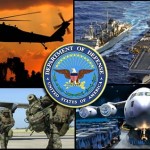 It’s the economy stupid! Without a robust and growing U.S. economy and tackling of the debt, the DOD budget will not be adequately resourced for the tasks given to it. Already the effects of sequestration has put huge burdens on DOD, which has greatly affected training, reediness and the ability to develop and purchase new equipment. Although the new Secretary may be seen as an hapless bystander in tacking these economic problems, they need to mobilize the Department to inform the American people and policy makers the real affects when these are not adequately resolved. As then Chairman of the Joint Chiefs of Staff Admiral Mike Mullen said that the national debt is “ the single biggest threat to our national security.”
It’s the economy stupid! Without a robust and growing U.S. economy and tackling of the debt, the DOD budget will not be adequately resourced for the tasks given to it. Already the effects of sequestration has put huge burdens on DOD, which has greatly affected training, reediness and the ability to develop and purchase new equipment. Although the new Secretary may be seen as an hapless bystander in tacking these economic problems, they need to mobilize the Department to inform the American people and policy makers the real affects when these are not adequately resolved. As then Chairman of the Joint Chiefs of Staff Admiral Mike Mullen said that the national debt is “ the single biggest threat to our national security.”
Climate
 The Department of Defense is becoming a leader in addressing the challenges of a changing climate. Secretary Hagel continued a revolution in the department’s view of climate change by outlining the serious threats with the Climate Change Adaptation Roadmap. This roadmap shows how a changing climate will have real impacts on our military and the way it executes its missions. The next secretary will have to integrate climate change considerations across the Department and manage the associated risks while collaborating with external stakeholders. The risks need to be fully analyzed in all areas of the military including training, operations, infrastructure, and supply chains.
The Department of Defense is becoming a leader in addressing the challenges of a changing climate. Secretary Hagel continued a revolution in the department’s view of climate change by outlining the serious threats with the Climate Change Adaptation Roadmap. This roadmap shows how a changing climate will have real impacts on our military and the way it executes its missions. The next secretary will have to integrate climate change considerations across the Department and manage the associated risks while collaborating with external stakeholders. The risks need to be fully analyzed in all areas of the military including training, operations, infrastructure, and supply chains.
Defense Energy
 The Department of Defense is the world’s number one consumer of fossil fuels, constituting about 1% of the US total energy use, and 77% of that energy comes from oil. The vulnerability of petroleum-based supplies continues to raise both risks to personnel and costs for DoD. To address these challenges, in April, 2014, DoD releases its first overarching defense energy policy in over 20 years. DoD is becoming an important investor in new, non-fossil energy sources. New investments in alternative fuels and renewable power on bases can have long-term implications for energy security by providing an alternative to oil. In a time of tightened budgets, the new Secretary will have to defend the viability of long-term investments to Congress and the public.
The Department of Defense is the world’s number one consumer of fossil fuels, constituting about 1% of the US total energy use, and 77% of that energy comes from oil. The vulnerability of petroleum-based supplies continues to raise both risks to personnel and costs for DoD. To address these challenges, in April, 2014, DoD releases its first overarching defense energy policy in over 20 years. DoD is becoming an important investor in new, non-fossil energy sources. New investments in alternative fuels and renewable power on bases can have long-term implications for energy security by providing an alternative to oil. In a time of tightened budgets, the new Secretary will have to defend the viability of long-term investments to Congress and the public.






